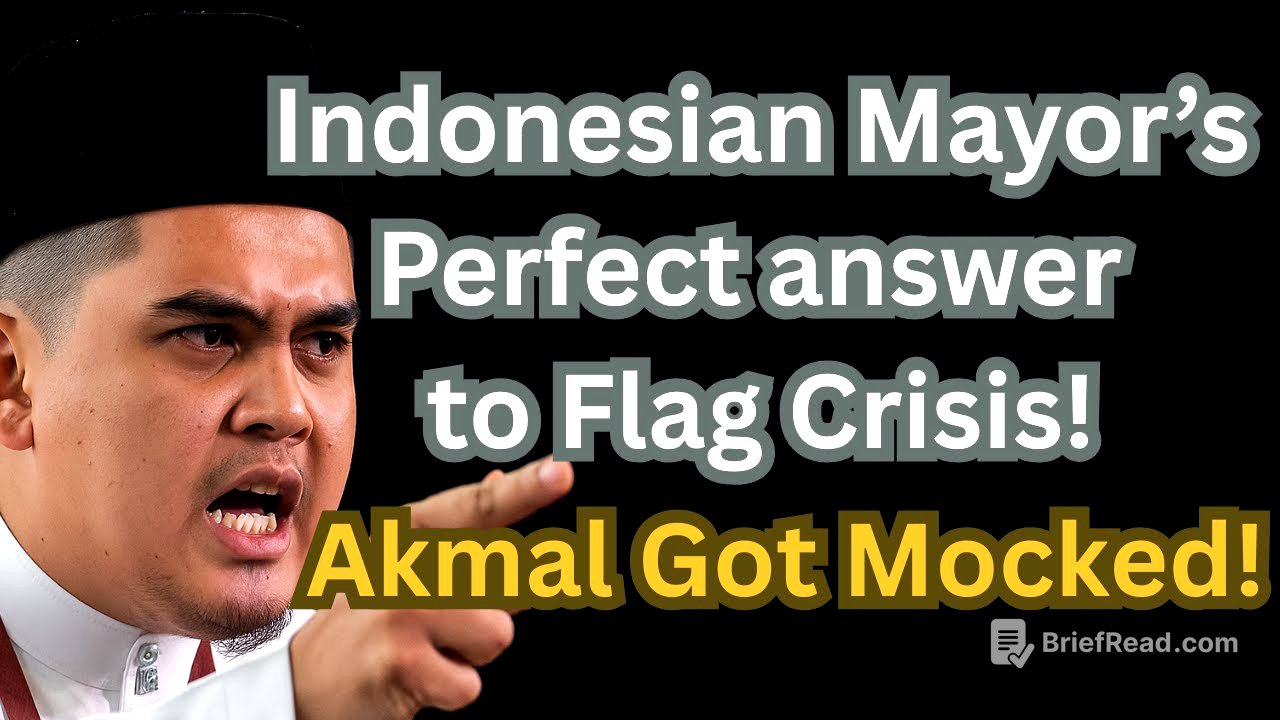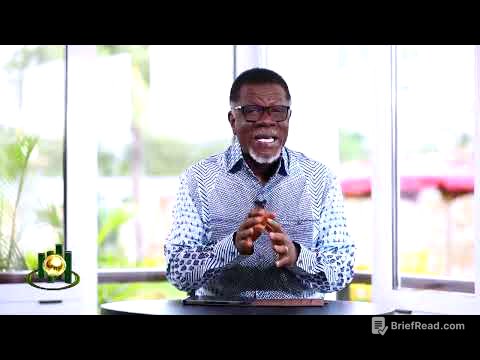TLDR;
The video explores the contrasting leadership styles in handling national symbols, using examples from Indonesia and Malaysia. It highlights how a calm, pragmatic approach can diffuse potential crises, while a fear-based, reactive approach can hinder national progress and unity. The discussion touches on the political implications of these approaches, emphasizing the need for leaders to prioritize national unity and focus on substantive issues over symbolic flare-ups.
- Contrasting leadership styles in handling national symbols.
- Impact of fear-based vs. pragmatic approaches on national progress.
- Political implications of prioritizing unity vs. escalation.
Introduction [0:00]
The discussion begins by highlighting how leaders' reactions to simple mistakes reveal their true leadership qualities. Some leaders turn minor incidents, like a wrongly hoisted flag, into national crises, while others handle similar situations with grace, diffusing potential chaos. The core question is whether some leaders intentionally stir up trouble for personal gain, while others focus on pragmatic solutions. This is compared to parenting styles, where some parents overreact to a child's mistake, causing fear, while others use it as a teaching moment to foster growth.
Indonesia's Calm Response [1:45]
Indonesia demonstrated calm leadership during its 80th National Day celebrations when an employee accidentally hoisted the national flag upside down. The local mayor praised the employee for their quick thinking in halting the ceremony and correcting the flag. The mayor framed it as an unintentional oversight and used it as a public service announcement to remind citizens to be careful when hoisting the flag, reinforcing civic duty without blame. This smooth handling avoided public outrage, political point-scoring, and national embarrassment.
Malaysia's Contrasting Approaches [3:46]
In contrast to Indonesia, Malaysia has seen flag sensitivities handled very differently, particularly by certain politicians, employing what some analysts call "scare education." This approach, based on fear and punishment, stifles critical thinking and innovation, hindering national development. However, another incident in Malaa, where a factory flag was filmed upside down, was handled pragmatically by the local state assemblyman, who investigated and clarified that strong winds had snapped the flag line, resolving the issue calmly without social unrest.
Reactions from Higher-Up [6:14]
The controversies surrounding the handling of flag incidents have drawn reactions from prominent figures. The MO president, Dto Seri Dr. Ahmad Zahed Hamidi, has openly criticized Akmal's methods, and the party seems to be distancing itself from his contentious actions. Prime Minister Dato Seri Anoir Ibrahim has also criticized the divisive nature of these controversies, emphasizing the need for unity and measured responses. These leaders likely see these issues as distractions from national agendas like economic recovery and reforms, risking the alienation of moderate voters.
Political Risks and the Need for Change [7:50]
There is a significant risk for the government if they are perceived as hesitant in handling these issues, potentially alienating crucial moderate voters. Rafizzy Ramly pointed out that while controversy might get a politician noticed in the short term, it carries a long-term risk of being branded a "flag politician" or "sock politician," trivializing their political career. The overall message is that these constant, disproportionately blown controversies are a serious drag on national focus, requiring leaders to take a firm, unified stand to resolve them decisively and focus on building a better future together.
Conclusion [9:09]
The contrast in leadership styles in handling seemingly small issues like an upside-down flag reveals a lot about priorities. The key question is whether the priority is national unity and practical solutions or emotional escalation, potentially for ulterior motives. Leaders' reactions shape society and its future, determining whether the nation moves forward resiliently or remains fragmented. The ultimate question is what kind of leadership best serves Malaysia's journey ahead.









